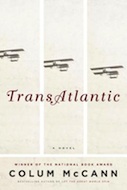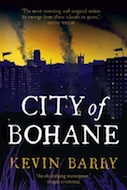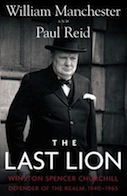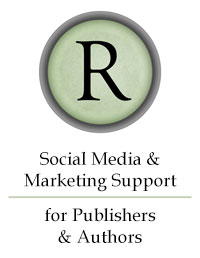With the awesome news that the wonderful Kelley Eskridge (author of the novel Solitaire) has a novella nominated for the Nebula Award, I dug through the hard drive to find a short review I wrote about her excellent collection of short stories, Dangerous Space, a year ago — the eagle-eyed among you may have spotted it in the header graphic above. It turned out to be very short, so I picked up the book, reread the brilliant “Dangerous Space,” and wrote a longer review.
 The opening line that I wrote last year is still true: this is the best collection of short stories I’ve read in forever. Cutting edge in every sense, Eskridge mines the raw edges of emotion — love, lust, and fear — and places her characters in settings just a little bit different to our own — the near future, the recent past, or the slightly fantastical. It’s odd that I respond to a collection of short stories, because I usually find the form disappointing: just when I’m getting to like a character or understand their world the story is over. But the fault lies with me, not short story writers: I guess I’m simply a story fan, and shorts generally don’t have enough story to keep me happy.
The opening line that I wrote last year is still true: this is the best collection of short stories I’ve read in forever. Cutting edge in every sense, Eskridge mines the raw edges of emotion — love, lust, and fear — and places her characters in settings just a little bit different to our own — the near future, the recent past, or the slightly fantastical. It’s odd that I respond to a collection of short stories, because I usually find the form disappointing: just when I’m getting to like a character or understand their world the story is over. But the fault lies with me, not short story writers: I guess I’m simply a story fan, and shorts generally don’t have enough story to keep me happy.
This isn’t the problem in Kelley Eskridge’s fiction. It’s quickly apparent that she knows the minutia of each milieu she depicts in incredible detail. After reading stories like “Strings” and “Dangerous Space” I am impressed by her knowledge of music, both the specialized vocabulary of the aficionado, but also the technical knowledge of a professional sound engineer. Eskridge may be neither of those things, but she completely convinces the reader that her characters are, and makes the world they inhabit fully real and vivid. Like her partner Nicola Griffith, Eskridge understands violence at a bone-deep level, the casual, understated violence of conversation, the accepted institutional violence of office politics, as well as the thin line between pleasure and pain often present in physical violence.
Nebula–nominated “Dangerous Space” concerns the romantic entanglement of Mars, an in-demand sound engineer and music producer making her way in the sexist music business. [Edit: it turns out the question of Mars’ gender is entirely up for grabs – see comments. You can make a case for the character being male or female, which makes the story all the more amazing. I’m sticking with my initial, gender-biased response because the comments would make no sense if I changed it;-)] Mars is highly competent and very successful, able to pick and choose the bands she produces. She agrees to work with Noir, an up-and-coming rock band fronted by a charismatic lead singer. While Mars isn’t willing to be another notch on his bedpost, she feels that the process of making music with him is as intimate as anything they might get up to in the sack. The sexual tension in the story is stretched tighter than guitar strings and the narrative arc is not your conventional opposites-attract love story. Eskridge plays with gender boundaries by introducing F-tech, a new technology that allows an individual to experience everything another individual does. Developed initially for the medical field, the adult entertainment industry quickly exploits it. Mars feels she has no need of it, because she knows “how the best sex feels. It feels like music.” “Dangerous Space” is a brave and convincing meditation on love, on sexuality and the possibility of truly connecting with another human being. (But don’t take my word for it, the whole story is available online. Go read it.)
Another story that explores the tortured path to sexual and emotional fulfillment is “Eye of the Storm,” a tale about a group of mercenaries perfecting their fighting techniques and seeking stable employment. One soldier is conflicted about his guilty secret: he’s turned on by the violence. Starved of physical comfort or affection as a child, he grows to manhood knowing the touch of others only through the use of force. The small group of mercenaries, male and female, he bonds with come to understand his enjoyment, and must decide whether they can accommodate it. This is probably the story in the collection that most screams out to be expanded into a novel, as it features a rich cast of characters and wrestles with taboo themes.
Published by the tiny feminist publishing house Aqueduct Press in Seattle, Dangerous Space is a book you’d be hard pressed to find in a chain bookstore, and is just the combination of high-quality storytelling and unorthodox perspective that independent bookstores should be promoting in order to set themselves apart. There isn’t a bad story in the whole book, and all reward rereading. If you (or your customers) like the work of Kelly Link, Nicola Griffith or Neil Gaiman, you’ll love Kelley Eskridge’s Dangerous Space.
Links
Interview with Kelley Eskridge about Dangerous Space.







6 comments
Comments feed for this article
March 3, 2009 at 3:40 pm
Get dangerous… : kelleyeskridge.com
[…] Many, many thanks to Rich Rennicks of Malaprop’s Bookstore/Cafe in Asheville for this lovely review of Dangerous Space. […]
March 4, 2009 at 8:58 am
Janine
What a fantastic review!
I’m curious, though, about how you decided Mars is female.
.grin.
We’re never given Mars’ gender or sex identity throughout the entire story–it’s one of my favorite things about it.
March 4, 2009 at 11:17 am
Rich
Probably simply because it’s a very romantic story and I’m a straight romantic;-) Just reading my own assumptions into it.
It honestly didn’t enter my head that Mars could be a guy until you suggested it. You’re right, Mars is never identified by any pronoun – so maybe the androgyny is intentional? He/she’s a sensitive individual, and the camaraderie between Lillie, Karen & Mars in the first scene in the bar made me feel she was female, and nothing directly contradicted that perception during the story. I think you really can read the story either way (and Mars as a guy may make more sense), and I love it even more now. Damn, what a great story!
March 4, 2009 at 2:02 pm
Kelley
I’m so glad you like the story, Rich. Thanks for the great review.
You’ll find that the Mars of “Salome” and “Storm” is similarly lacking in gender descriptions from self and others. If you’re interested, I have some things to say about it in this interview.
March 4, 2009 at 2:03 pm
Kelley
Oops, link didn’t come through: interview is at the Aqueduct blog at http://aqueductpress.blogspot.com/2007/12/speculating-gender-interview-with.html
March 4, 2009 at 11:08 pm
Jennnifer
Excellent review on a great collection. I’ll have to keep an eye on this blog now that I know what great taste you have. 🙂